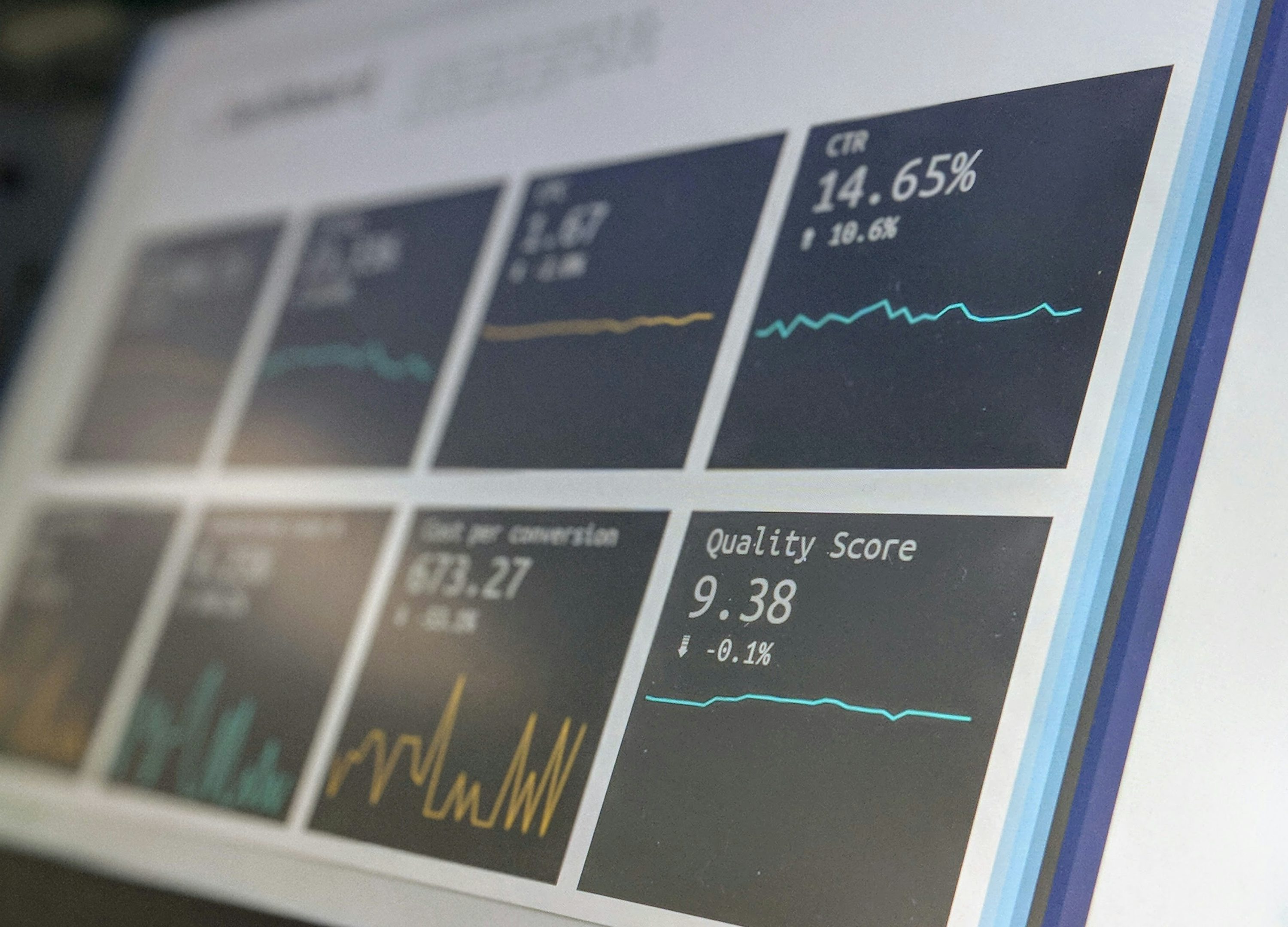Operationalization | Definition, Steps & Guide
- Introduction
- What is operationalization?
- Why is operationalization important?
- Operationalization in qualitative research
- Examples of operationalization
- Establishing operationalization
Introduction
Operationalization is a fundamental process in qualitative research, turning abstract concepts into measurable variables.
By understanding operationalization, researchers can ensure their studies are both precise and replicable, contributing to the credibility and validity of their findings.
This article outlines the steps and considerations necessary for effective operationalization, providing clear guidance for researchers.
This guide covers the definition and importance of operationalization, its application in qualitative research, and examples from various fields. It also details the process of establishing operationalization, from identifying concepts to ensuring credibility.

What is operationalization?
Operationalization refers to defining abstract concepts in measurable terms, allowing researchers to empirically observe and analyze these concepts.
This process involves identifying specific indicators that represent the concept in which you are interested. It is important in both qualitative and quantitative research, serving as a bridge between theoretical frameworks and practical investigation.
In qualitative research, operationalization involves breaking down complex, often subjective concepts into observable elements. For instance, research can operationalize concepts like "social capital" by identifying indicators such as community participation, trust among community members, and access to social networks.
By defining these elements, researchers can systematically collect data and ensure consistency across different studies.
A clear operational definition allows researchers to communicate their methods and findings more effectively. It also enhances the reproducibility of the research, as other scholars can understand precisely how concepts were measured and build on the study. Without operationalization, research can become ambiguous and difficult to interpret, as abstract concepts may be understood differently by various researchers.

The process of operationalization typically begins with conceptualization, where researchers clarify what they mean by a particular concept. This involves a thorough literature review and theoretical exploration to identify the most relevant dimensions of the concept.
Once these dimensions are established, researchers develop specific indicators to define and identify concepts that can be observed during the course of a study. For example, if a researcher aims to study "academic engagement," they might operationalize this concept by identifying indicators such as class participation, approaches to homework, and attitudes towards attendance.
These indicators can then be systematically analyzed through interviews, surveys, or observational methods.
Operationalization is an iterative process that develops the definitions of concepts over the course of a study. As researchers collect data and analyze their findings, they may refine their operational definitions to better capture the nuances of the concept. This iterative nature ensures that the operationalization remains relevant and meaningfully reflects the concept being studied.
Why is operationalization important?
Operationalization is important because it provides clarity and precision in research. By defining abstract concepts in measurable terms, researchers can systematically investigate these concepts, ensuring that their studies are transparent and systematic.
This precision helps to establish the credibility of research findings, as it minimizes ambiguity and allows for consistent data collection and analysis.
Moreover, operationalization enhances the growth of research. When concepts such as social media behavior are clearly defined and measured using specific indicators, other researchers can build on the the findings to conduct studies on the same kind of concept. This transparency is key to verifying results and building a robust body of scientific knowledge.

Operationalization also facilitates effective communication among researchers. Clear operational definitions ensure that everyone understands the concepts being studied in the same way, promoting better collaboration and comparison across studies.
This common understanding is particularly important in multidisciplinary research, where different fields may use varying definitions for the same concepts.
Finally, operationalization supports the iterative nature of research. As researchers gather data and refine their understanding of a concept, they can adjust their operational definitions to better capture its nuances.
This flexibility allows for continuous improvement in research methods and outcomes, contributing to more thorough and rigorous studies.
Operationalization in qualitative research
Operationalization in qualitative research involves translating abstract concepts into specific, observable elements. This process allows researchers to systematically study complex phenomena and gather meaningful data.
The following subsections outline key steps in operationalizing concepts in qualitative research.
Conceptualization
Conceptualization is the first step in operationalization, where researchers define what they mean by a particular concept. This involves a thorough review of existing literature and theoretical frameworks to identify the various dimensions of the concept.
For example, if a researcher wants to study "cultural identity," they might identify dimensions such as language use, cultural practices, and self-perception. Clear definitions at this stage provide a solid foundation for the subsequent steps.
Data collection
Once the concept is clearly defined, researchers proceed to data collection. This involves selecting appropriate methods to observe and measure the identified dimensions. Common qualitative methods include interviews, focus groups, and participant observation.
For instance, to study cultural identity, a researcher might conduct in-depth interviews with individuals from different cultural backgrounds, observing their behaviors, and collecting narratives that reflect their cultural practices and self-perceptions.
Iteration
Iteration is a critical aspect of operationalization in qualitative research. As researchers collect data, they continuously refine their operational definitions and measurement techniques. This iterative process ensures that the research remains flexible and responsive to new insights.
For example, initial interviews might reveal additional dimensions of cultural identity that were not previously considered, prompting researchers to adjust their conceptualization and data collection methods accordingly.
Quantification
While qualitative research primarily focuses on non-numerical data, quantification can play a role in operationalization. Researchers can assign codes to segments of qualitative data to facilitate analysis.
For example, responses from interviews can be coded and categorized, allowing researchers to identify patterns and trends.
This quantification does not reduce the richness of qualitative data but rather provides a structured way to analyze and interpret complex information through qualitative analyses as well as quantitative analyses such as statistical analysis.

Examples of operationalization
Operationalization can be applied across various fields, each with its unique concepts and methods.
The following examples illustrate how operationalization can be used in three different fields.
Psychology
In psychology, operationalization is essential for studying complex mental processes and behaviors. For example, to study "anxiety," researchers might define it through observable behaviors.
Indicators could include self-reported feelings of nervousness and avoidance behaviors. Researchers might conduct individual interviews and observations to identify indicators of anxiety and related situational stressors.
By clearly defining anxiety and its indicators, researchers can systematically study this complex phenomenon and how individuals interpret and react to anxiety.
Education
In education, operationalization helps researchers analyze abstract concepts such as "academic achievement." This concept can be operationalized through various qualitative indicators, including attitudes towards education, individual goals, and daily engagement in education.
For example, to study the impact of a new teaching method on academic achievement, researchers might compare students' learning behaviors before and after the implementation of the method. They could also consider additional factors such as class participation and engagement in homework.
By defining academic achievement through multiple indicators, researchers can gain a richer understanding of the concept and its influencing factors.
Marketing
Operationalization in marketing involves defining consumer-related concepts in measurable terms to inform business strategies. For example, "brand loyalty" can be operationalized by looking at repeat purchase behavior, customer satisfaction, and brand advocacy.
Researchers might use surveys to analyze customer satisfaction, study purchase history for repeat behavior, and monitor social media for instances of brand advocacy.
By operationalizing brand loyalty, marketers can identify key drivers and develop strategies to enhance customer retention and satisfaction.
Establishing operationalization
Establishing operationalization in empirical research involves several steps to ensure that abstract but potentially complex concepts are translated into measurable variables.
This process includes a number of steps that researchers should take in order to provide for operationalized concepts and ensure a rigorous, empirical study.
Identify existing concepts
The first step in operationalization is to identify the concept or constructs that need to be measured. This often begins with a thorough literature review to understand how the concept has been defined and measured in previous research.
For instance, if the concept is "job satisfaction," researchers might look at various definitions and dimensions used in past studies. Identifying existing concepts helps to build on established knowledge and ensures that the research is grounded in a solid theoretical framework.
Develop indicators
Once the concept is identified, the next step is to develop indicators that represent the different dimensions of the concept. Indicators are specific, observable, and measurable elements that reflect the abstract concept. For job satisfaction, indicators might include factors such as work environment, salary, and relationship with colleagues.
Each indicator should be clearly defined and linked to the concept it represents. This step often involves brainstorming, consulting experts, and reviewing relevant literature to ensure that the indicators are comprehensive and valid.
Design study
With the indicators in place, researchers can design the study to measure them. Research design involves framing a research question based on the indicators chosen and selecting appropriate research methods and tools that will accurately capture the data.
For instance, surveys, interviews, and observation are common methods used in qualitative research. The design phase also includes determining the sample size, sampling method, and data collection procedures.
Researchers must ensure that the study design aligns with the research questions and objectives, and that it will provide reliable and valid data. Measurable observations, for example, do not indiscriminately collect data but capture events and development that are relevant to the indicators chosen for the study.
Collect data
Data collection involves gathering information based on the defined indicators. Researchers must carefully plan and execute this phase to ensure accuracy and consistency.
For example, if using surveys, researchers should ensure that questions are clear and not implicitly driving participants to give a certain type of response. If conducting interviews, researchers should use a structured or semi-structured format to maintain consistency.
Data collection also involves training data collectors and piloting the data collection tools to identify any issues before full-scale implementation. This phase is critical for obtaining high-quality data that meaningfully reflect the concept being studied.
Analyze data
Once data are collected, the next step is to analyze it. This involves organizing and interpreting the data to draw meaningful insights. Qualitative data analysis methods include coding, categorization, and thematic analysis. Researchers must carefully examine the data to identify patterns, relationships, and trends.
For instance, in a research study on job satisfaction, researchers might look for recurring themes related to work environments or relationships with colleagues. The analysis should be rigorous and systematic to ensure that the findings are robust and credible.
Ensure credibility
Ensuring credibility is essential in qualitative research to establish the trustworthiness of the findings. This involves several strategies, including triangulation, member checking, and peer debriefing.
Triangulation involves using multiple data sources, methods, or researchers to cross-verify the findings.
Member checking entails sharing the findings with participants to validate the accuracy of the interpretations.
Peer debriefing involves consulting with other researchers to review and critique the study. These strategies help to enhance the credibility of the research.




